Farm to Preschool in Action
|
This spring Ronda Taylor Bullock from we are led racial equity trainings for the Farm to ECE Collaborative. She facilitated workshops around recognizing implicit bias and how these biases play out in early education, how inequities show up in Farm to ECE, and how we can address them with this work.
Dr. Taylor Bullock is the co-founder and executive director of we are, which stands for working to extend anti-racist education. As a non-profit, we are works to equip children, parents, and educators with the knowledge and skills necessary to understand the complexity of racism. We are uses a three-pronged approach to dismantle systemic racism in education by offering summer camps for children in rising 1st-5th grade, workshops for parents, and professional development for educators. Are you a center interested in starting this work? Here is their website to learn more: www.weare-nc.org.
|
|
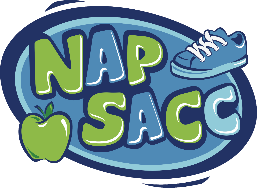
Go NAPSACC’s newest module, Farm to ECE, is a great way to support your work on serving local foods, gardening, and teaching children where food comes from! Like all of the Go NAPSACC modules, the Farm to ECE module walks users through a five-step process to improve policies, practices, and environments in early care and education settings.
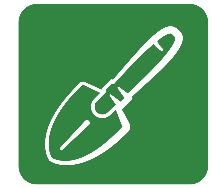
Users start by taking a self-assessment and reviewing results with the help of a TA consultant. Then they work together to set goals and make action plans to meet them. Go NAPSACC offers a tips and materials library full of resources helping providers meet goals to serve children local food, garden, engage parents, and improve policy. The last step is to retake the self-assessment to see and celebrate the changes you have made.
To register for a new account or re-engage with Go NAPSACC, contact your local Smart Start office or email us at gonapsacc@unc.org.
|
|
by Maria Hitt
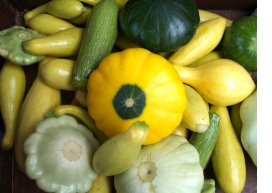
North Carolina produces 21 million pounds of squash a year making it one of the top vegetables grown in our state. It’s not too late to plant summer squash seeds or plants! Don't forget, zucchini counts as squash too. If garden space is limited, look for varieties that are small growing space savers such as Sunburst Patty Pan, Gold Rush, Sundance, or Eight ball.
If you have a little more room to spread out, try this technique. Plant squash in "hills" or clusters. Start with a mound of soil about two feet wide and six inches tall. Work in the compost and a sprinkling of fertilizer. Next plant three or four seeds about four inches apart in the center of the mound. Once sprouted, thin to two plants per hill.
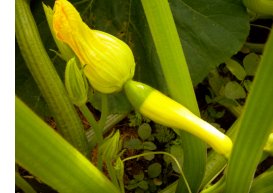 As the squash grows, yellow flowers will appear. A fun science activity and exploration for children is to study the flowers and notice that there are male and female flowers. They tend to invite a lot of bees, vital for pollination. Watch this video to distinguish which flowers are males versus females and how to manually pollinate, if necessary. Once the female flower has been fertilized, the petals will close and then within a few days you will be able to see the baby squash forming at the base of the flower. As the squash grows, yellow flowers will appear. A fun science activity and exploration for children is to study the flowers and notice that there are male and female flowers. They tend to invite a lot of bees, vital for pollination. Watch this video to distinguish which flowers are males versus females and how to manually pollinate, if necessary. Once the female flower has been fertilized, the petals will close and then within a few days you will be able to see the baby squash forming at the base of the flower.
There are all kinds of possible lessons you can teach the children with these flowers. Best of all, they are edible! Many traditional Mexican dishes incorporate squash blossoms; you can eat them raw or prepare in a little butter and add to tacos or quesadillas.
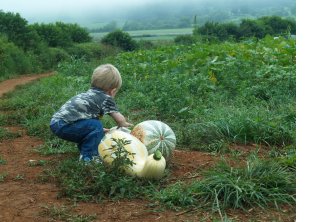 With most summer squashes and cucumbers, it’s best to pick them when they are young, small, and tender: around six to eight inches long for zucchinis and yellow squash, or three to four inches across for the patty pan and eight ball varieties. While it might be fun to grow a zucchini the size of a baseball bat, it won’t be very good to eat. With most summer squashes and cucumbers, it’s best to pick them when they are young, small, and tender: around six to eight inches long for zucchinis and yellow squash, or three to four inches across for the patty pan and eight ball varieties. While it might be fun to grow a zucchini the size of a baseball bat, it won’t be very good to eat.
Summer squashes can be quite prolific and a nice addition for your menus. They can also be eaten raw with a dip or grated into salads or casseroles. Squash quick breads and muffins are a good way to use those forgotten squash left to grow too large.
Now, let's talk about pests.
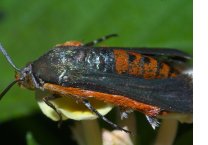 Squash vine borers are one of two main pests for squash. To prevent borers, place tinfoil around the stem of the plant where it emerges from the soil. This is where beautiful black and red flying insect will try to lay its eggs. If they succeed, you will notice your plant is drooping and there will be a hole with a sawdust sort of deposit around the base of the stem. You can cut the stem open lengthwise and pull out the worm, then cover the stalk with soil and leaves and the plant may recover. If the worm is not removed, it will kill the plant. Squash vine borers are one of two main pests for squash. To prevent borers, place tinfoil around the stem of the plant where it emerges from the soil. This is where beautiful black and red flying insect will try to lay its eggs. If they succeed, you will notice your plant is drooping and there will be a hole with a sawdust sort of deposit around the base of the stem. You can cut the stem open lengthwise and pull out the worm, then cover the stalk with soil and leaves and the plant may recover. If the worm is not removed, it will kill the plant.
Squash bugs, which are a type of stink bug, are another big problem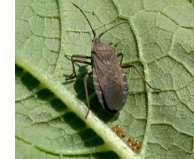 for squash. They lay small round golden/coppery eggs on the underside of the squash leaves in clusters. If you spot these, they can be removed. If the bugs are seen after hatching, a board placed on the soil near the squash plants will make a space where the bugs can crawl under and hide overnight. In the morning you can lift the board and dispose of them in soapy water (or pluck them off the leaves). Some children might shriek, but other will enjoy searching for bugs and removing them from the plants. for squash. They lay small round golden/coppery eggs on the underside of the squash leaves in clusters. If you spot these, they can be removed. If the bugs are seen after hatching, a board placed on the soil near the squash plants will make a space where the bugs can crawl under and hide overnight. In the morning you can lift the board and dispose of them in soapy water (or pluck them off the leaves). Some children might shriek, but other will enjoy searching for bugs and removing them from the plants.
It is also time to plant winter squash, which have a longer growing season. Butternuts, acorn, delicata squash, pumpkins as well as the summer squashes can all be planted between April and August, but the earlier they are planted, the less likely they will have insect problems and the more likely you will get a good crop of mature winter squash.
|
|
Zucchini salad - diced or shredded
Recipe by: Robert Cates
Meal Service Program Manager, Child Care Services Association
Serving Size: 20
Yield: 1 1/2 quarts
Preparation Time: 1 hour
3 pounds fresh local zucchini, diced or shredded
1 1/2 teaspoons salt
1/2 cup sour cream, light
1/2 cup nonfat yogurt
1 tablespoon lemon juice
1/2 teaspoon cumin powder
1/8 teaspoon black pepper
1/4 teaspoon paprika
2 tablespoons dried onion flakes
Wash and trim ends from zucchini and dice 3/8 inch. Add salt to zucchini and toss to mix well. Place in colander to drain and let sit for at least 30 minutes. Lightly squeeze as much liquid out of squash as possible. Mix together the rest of the ingredients. Toss zucchini together with dressing.
Also, try the Crookneck Squash Pasta Salad recipe on page 28 of Crookneck Squash Row from Grow It, Try It, Like It.
|
|
NC Farm to Preschool Network Advisory Committee Member
Angela Lewis, CFLE
Shape NC Implementation Coach
The North Carolina Partnership for Children
Angela Lewis is an Implementation Coach for the Shape NC: Healthy Starts for Young Children program at the North Carolina Partnership for Children (NCPC). Angela earned a B.S. degree in Family and Community Services with a concentration in Family Studies from East Carolina University. She has worked in the early childhood field as an Infant/Toddler Teacher, Early Literacy Coordinator, Early Childhood Systems Coach, Early Literacy and Family Literacy Specialist, Certified Family Life Educator (CFLE), and Triple P Positive Parenting Program Provider. Angela enjoys fun days with her grandchildren, a good book, and a good cup of coffee!! |
|
|
|
Join ASAP for the 2019 Farm Tour on June 22-23, 12-5 pm at farms across Western North Carolina! Connect with western region farmers and get a behind-the-scenes tour of local food in the mountains. ASAP’s Farm Tour is a chance to experience how food is grown and raised through guided tours, demonstrations, hands-on activities, and tastings. The tour is a family-friendly event and a great outing for visitors of all ages, abilities, and interests. Purchase your advance pass now (good for all passengers of a single vehicle) for $30, or the weekend of the tour for $40.
|
|
|
by Kathrine Pryor
The first zucchini of a summer garden is always exciting, but what happens when the plants just keep growing…and growing…and growing?
|
|
This Week in the Garden @ Preschool
|
|
Natural Learning Initiative
Early Childhood Outdoor Environments
Online Certificate Courses
The two certificate programs are fully online distance education courses and are tailored for early childhood educators or landscape architects/designers. Each supports interested learners in gaining the skills and understanding required to create, manage, promote, organize, and administer high quality outdoor environments for young children and accompanying adults.
Both courses will run from June 3rd to August 25th, 2019. Learn more and register here.
Conferences
Georgia Farm to School and ECE Summit
June 7-8, 2019
Macon, GA
Childhood Obesity Conference
June 15-18, 2019
Anaheim, CA
QRIS National Meeting
June 25-27, 2019
New Orleans, LA
27th annual National Children & Youth Garden Symposium
July 10-13, 2019
Madison, WI
Food Sovereignty Summit
September 23-26, 2019
Green Bay, WI
September 26-29, 2019
Transverse City, MI
Community Food Systems Conference
December 9-12, 2019
Savannah, GA
April 14-16, 2020
Atlanta, GA
April 20-24, 2020
Albuquerque, NM
Webinars
Trending Topics in Farm to School:
Child Nutrition Reauthorization and Federal Policy Advocacy - How You Can Get Involved
June 6, 1 PM ET
The next Child Nutrition Reauthorization (CNR) is at the forefront of food policy discussions in Washington. A diverse community of voices should be heard in policymaking, but do you find it challenging to get involved? Join Chloe Marshall, National Farm to School Network Policy Specialist, to learn about CNR and how you can advocate with impact! Participation in this webinar in not considered lobbying. Register here.
Farm to CACFP - Getting Started with Local Foods
If you missed the webinar, that's okay! You can view the recording using this link.
Save the Date
Sign up now for the NC Crunch 2019 and receive the planning guide to get ready to crunch. The NC Crunch offers kids and adults in schools and early care and education sites a chance to taste and learn about NC produce. Help reach the 2019 goal of 500K participants!
|
|
Like us on Facebook and you'll get the most up-to-date information on resources, events, webinars, and more!
Have something to share in our e-newsletter? Submit your request to:
Kim Knoppel kim@asapconnections.org.
The purpose of the NC Farm to Preschool Network (NCF2PSN) is to connect, educate, develop, and share resources between community and state partners, farmers, early childhood educators, and families to spark the local foods movement in early childhood education environments. |
|
|